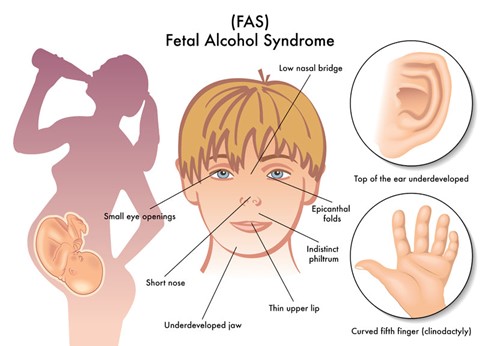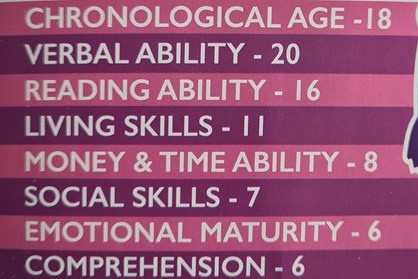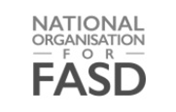Symptoms include:
- a head that's smaller than average
- poor growth – they may be smaller than average at birth, grow slowly as they get older, and be shorter than average as an adult
- distinctive facial features – such as small eyes, a thin upper lip, and a smooth area between the nose and upper lip, though these may become less noticeable with age
- movement and balance problems
- learning difficulties – such as problems with thinking, speech, social skills, timekeeping, maths or memory and recall.
- issues with attention, concentration or hyperactivity
- problems with the liver, kidneys, heart or other organs
- hearing and vision problems
- Impulse control
- Risk taking behaviour.
These problems are permanent, though early treatment and support can help limit their impact on an affected child's life.




